Structural Support in Biology
Structural support is a significant aspect of biology, encompassing the various mechanisms and components that provide support, shape, and protection to living organisms. From the cellular level to the whole organism, structural support plays a crucial role in maintaining the form and function of living organisms.
Cellular Level
At the cellular level, the cytoskeleton provides structural support to cells. It is composed of protein filaments such as microtubules, actin filaments, and intermediate filaments. These filaments help in maintaining the shape of the cell, supporting cell movement, and facilitating intracellular transport.
Tissue and Organ Level
In multicellular organisms, tissues and organs require structural support to maintain their form and function. The extracellular matrix (ECM) provides structural support to the cells within tissues. It is composed of proteins such as collagen, elastin, and glycoproteins, which give tissues strength, elasticity, and support.
Whole Organism Level
At the whole organism level, the skeletal system provides structural support to vertebrates. The skeleton, made up of bones and cartilage, supports the body, protects internal organs, and facilitates movement.
Study Guide
- Describe the role of the cytoskeleton in providing structural support to cells.
- Explain the composition and function of the extracellular matrix in providing structural support to tissues.
- Discuss the importance of the skeletal system in providing structural support at the whole organism level.
- Compare and contrast the structural support mechanisms in unicellular and multicellular organisms.
- Investigate the impact of genetic disorders on structural support mechanisms in living organisms.
◂Biology Worksheets and Study Guides High School. Human biology II
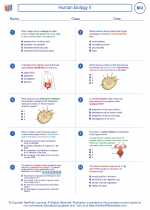
 Worksheet/Answer key
Worksheet/Answer key
 Worksheet/Answer key
Worksheet/Answer key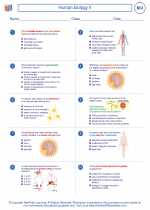
 Vocabulary/Answer key
Vocabulary/Answer key
 Vocabulary/Answer key
Vocabulary/Answer key
 Vocabulary/Answer key
Vocabulary/Answer key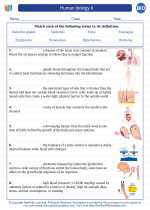
 Vocabulary/Answer key
Vocabulary/Answer key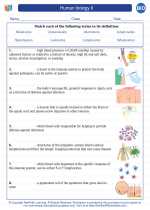
 Vocabulary/Answer key
Vocabulary/Answer key
 Vocabulary/Answer key
Vocabulary/Answer key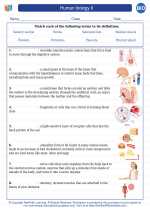
 Vocabulary/Answer key
Vocabulary/Answer key
